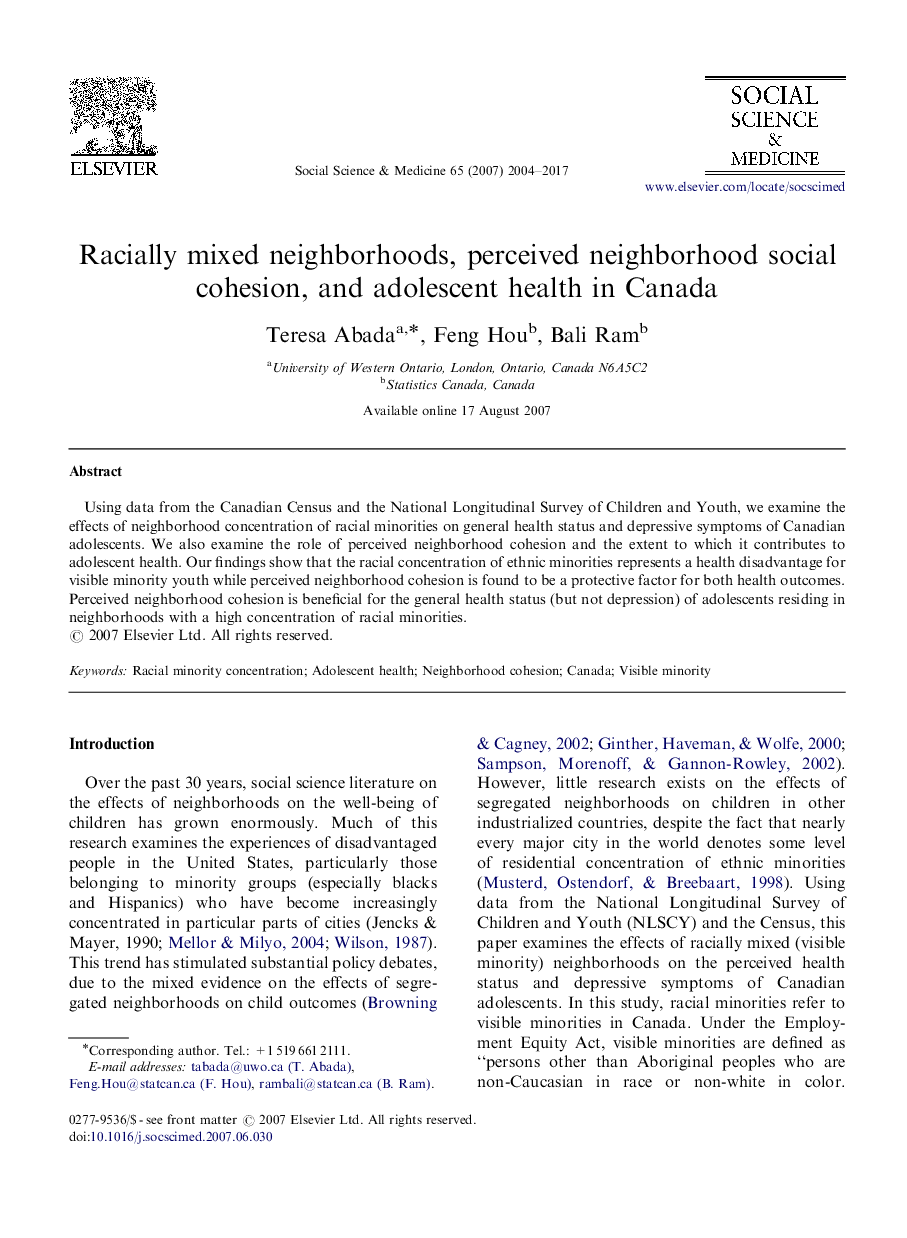| Article ID | Journal | Published Year | Pages | File Type |
|---|---|---|---|---|
| 954019 | Social Science & Medicine | 2017 | 14 Pages |
Using data from the Canadian Census and the National Longitudinal Survey of Children and Youth, we examine the effects of neighborhood concentration of racial minorities on general health status and depressive symptoms of Canadian adolescents. We also examine the role of perceived neighborhood cohesion and the extent to which it contributes to adolescent health. Our findings show that the racial concentration of ethnic minorities represents a health disadvantage for visible minority youth while perceived neighborhood cohesion is found to be a protective factor for both health outcomes. Perceived neighborhood cohesion is beneficial for the general health status (but not depression) of adolescents residing in neighborhoods with a high concentration of racial minorities.
